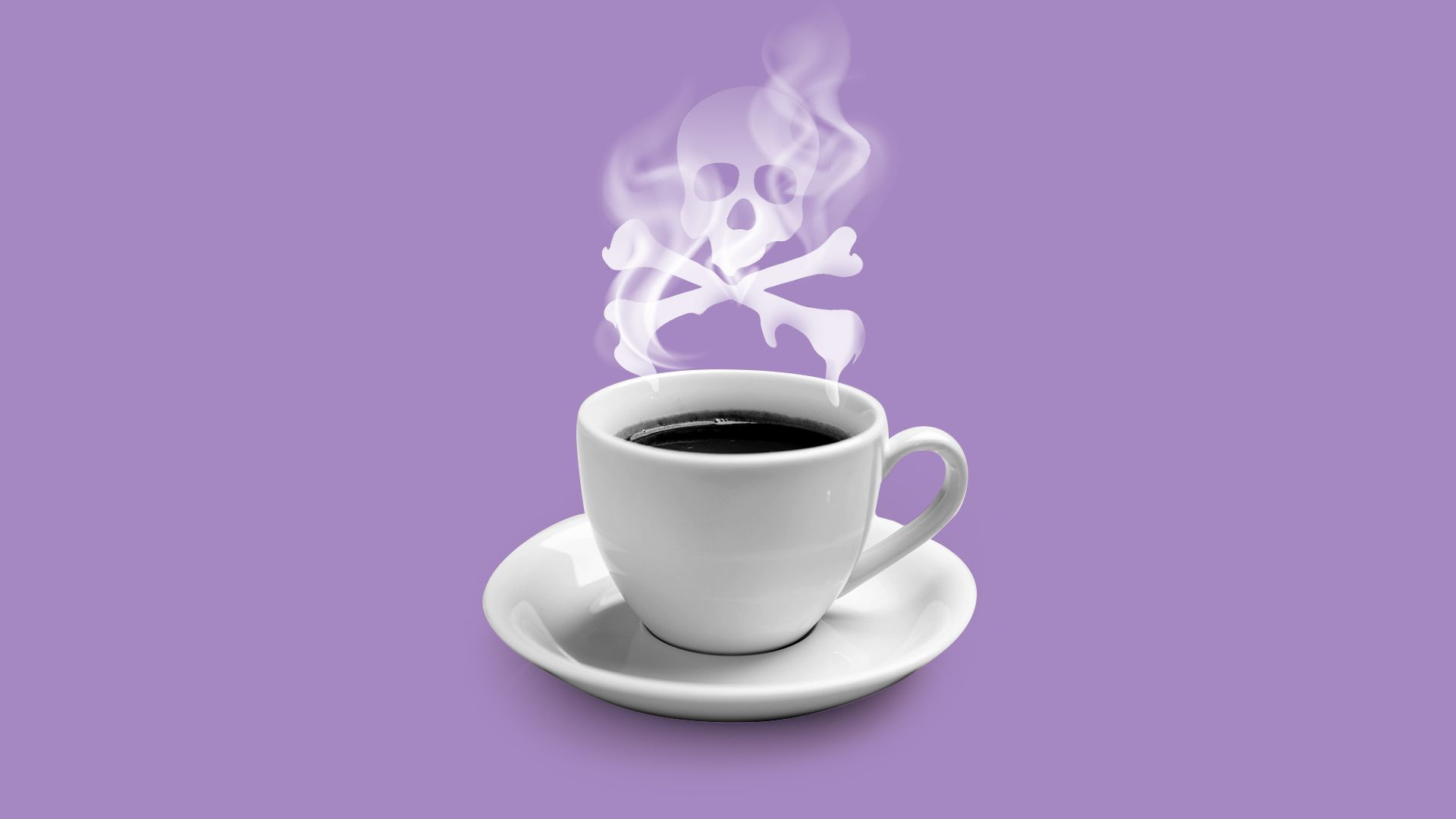By: Jessie Li – axios.com –
An ongoing movement of “death cafes” — open salons for discussing death, with no set agenda — is spreading across America with the goal of ending the taboo around talking about dying.
The big picture: The number of Americans 65 and older is on course to double from 46 million to over 98 million by 2060. Aided by a growing culture of sharing and openness in society, the future of these aging boomers is spurring conversations about aging and dying.
Between the lines: Step into a death cafe and the first thing you’ll notice is that it doesn’t necessarily look like a group of people conversing about the end of life.
- There’s cake. There’s tea. There’s laughter.
- That’s part of the approach, says Sarah Farr, founder of Death Positive DC and a death cafe organizer. “Life is funny. And sometimes using humor can lighten the conversation a bit.”
Anyone can host a death cafe at a local coffee shop, library or public space. Anyone can show up. Anyone can contribute, or just listen.
- Nearly 9000 death cafes have been held across the world, and an updated interactive map helps conversation-seekers find upcoming death cafes.
- Swiss sociologist Bernard Crettaz organized the first “café mortel” in 2004, but the “death cafe” was popularized by Londoner Jon Underwood in 2011, who called himself a “death entrepreneur” and was inspired by the Buddhist concept of impermanence.
At death cafes, topics can range from logistical to mystical: from writing your will to what happens to the soul after death.
- “Coco comes up a lot. It’s a Disney kids movie. But it’s such a beautiful movie about death and staying connected to our dead loved ones,” says Farr.
“For many of us, there is sort of silence around the topic of death. We aren’t really educated on how to talk about death.”
— Sarah Farr, founder of Death Positive DC Death cafes aren’t just for those who are aging or have terminal illnesses.
- High school students who have lost a parent, a sibling or a friend; ICU nurses burnt out from seeing how death is treated in hospitals; government desk workers — these are all people who have participated in death cafes run by Nicole Heidbreder, a D.C.-based hospice nurse.
Today, death cafe organizers like Farr and Heidbreder are seeing more momentum around talking about death.
- “In America, we live in a very youth driven culture. There are definitely some aspects of our culture that deny death,” Farr says.
- But greater attention in the news and social media, along with grassroots work like death cafes, increased awareness from mass shootings and the rise of doctors who have become household names — like Atul Gawande and BJ Miller — is changing how Americans talk about death.
The bottom line: “One of the most fundamental things about death cafes is that in all these conversations, what we’re really getting at is looking at our own lives,” says Farr. “How do we want to live? What are we going to do with the time that we have?”
To see this article and others by Jessie, click read more.
Source: The group trying to tackle the taboo topic of dying with “death cafes” – Axios
 Listen Online
Listen Online Watch Online
Watch Online Find a Station in Your Area
Find a Station in Your Area








 Listen Now
Listen Now Watch Online
Watch Online
